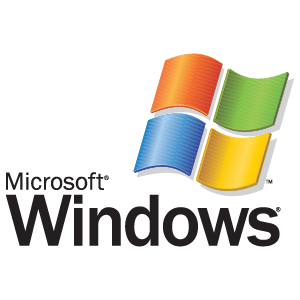Oracle Ends Microsoft Windows Platform Support
Abstract:
Sun Microsystems had branched out into Intel Support, even as far as alternate operating systems, to gain market share. For awhile, Sun was #3 in servers shipped. Oracle had purchased Sun Microsystems, advanced the SPARC processors, to make the fastest servers in the world, running Solaris. This occurred, as Oracle continued to advance Intel based Engineered Systems. Microsoft Windows was a key native platform support for Intel Oracle hardware. |
| [Microsoft Windows Logo, courtesy seeklogo.net ] |
Oracle Orphans Windows on Intel Based Bare Metal:
Oracle had discontinued Intel Hardware Management support for Microsoft Windows on the their Intel based chassis. As per their note:Note - Oracle Hardware Management Pack version 2.3.8 is the last release of Oracle Hardware Management Pack to include support for the Microsoft Windows operating system.August 2018 Release Notes for Oracle Hardware Management Pack version 2.4 clearly states that it has removed Microsoft Windows Support.
Removed support for the Microsoft Windows operating system. Oracle Hardware Management Pack version 2.3.8 is the last version to support Microsoft Windows.
Windows on Oracle's Bare-Metal Servers will no longer be a best-practice in datacenters.
 |
| [Solaris Logo, courtesy Sun Microsystems] |
Oracle Solaris on SPARC & Intel Lives On
The Oracle Hardware Management Pack has become integrated & delivered in Oracle Solaris 11 releases, directly from Oracle. It has been bundled in 11.2, 11.3, and now 11.4 - from the very first releases of the operating systems. Support for Oracle Solaris on Oracle Hardware lives on!











